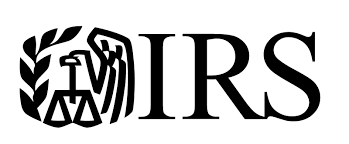Communication blocked? IRS invites cryptocurrency companies to summit
Author: Luo Tao
Last week, the Government Accountability Office (GAO), which oversees the government, announced that the IRS had refused to adopt several recommendations to clarify its existing guidelines.

The GAO released a report at the request of Rep. Kevin Brady, assessing the IRS's existing methods and public guidance around cryptocurrencies.
- Don't wait for the road to wake up: the key points of blockchain project compliance review
- Baidu, Ant, and Tencent on the Forbes Blockchain Top 50: Industry Blockchain Weekly Highlights
- To achieve a 10,000-fold expansion of Bitcoin, what is the new agreement Prism created by MIT and Stanford?
The office provided three recommendations for U.S. tax collectors and another related recommendation for the Financial Crimes Enforcement Network (FinCEN), a division of the Treasury. It is worth noting that one of its recommendations was to clarify that some of the IRS's latest guidelines are not binding or authoritative-but the IRS rejected the recommendation.
The GAO report contains the following statements:
"Some of the 2019 guidelines are not authoritative because they are not published in the Internal Revenue Bulletin (IRB). The IRS states that only guidelines issued by the Internal Revenue Bulletin are the IRS's authoritative interpretation of the law. The IRS does not pay taxes People have made it clear that this part of the guide is not authoritative and is subject to change. "
The report states that the IRS's 2019 guidelines answer some questions about the tax treatment of cryptocurrencies, but "are raising new concerns among virtual currency stakeholders." Compliance with tax requirements can be difficult, and the GAO report suspects that transaction activity may be underestimated due to unclear content of the report.
GAO said further trouble came from foreign account reporting requirements. Specifically, it is unclear whether the foreign bank account reporting requirements in the Bank Secrecy Act (BSA) and Foreign Account Tax Compliance Act (FATCA) reports apply to cryptocurrencies.
Indeed, even the wording around cryptocurrencies is vague. The IRS and other agencies of the federal government have been referring to cryptocurrencies as virtual currencies, but as Jerry Brito of Coin Center points out, the term can also refer to digital currencies used in video games .
GAO recommends that the IRS add a note stating that its 2019 FAQs are not binding and clarify third-party reporting requirements and clarify reporting requirements on FATCA. GAO also recommends that FinCEN collaborate with the Internal Revenue Service to share more information on reporting requirements for foreign accounts. The IRS agrees with the second recommendation, but disagrees with the first and third recommendations.
GAO says:
"We remain confident that the inclusion of such a statement will increase transparency and help taxpayers understand the nature of the information provided in the FAQ."
Potential communication effort
According to relevant information, the IRS has invited cryptocurrency companies and advocates to a March 3 summit to discuss how the agency "balances taxpayer services and regulatory enforcement", the current method of taxing cryptocurrencies And law enforcement.
The invitation said: Panelists from the private sector and the government "will share their perspectives and interact with the audience, including IRS staff from all areas of the IRS and individuals from other bureaus or offices of the Ministry of Finance."
An IRS spokesman confirmed that the summit is scheduled for next month.

It is reported that the summit will be held at the IRS headquarters in Washington, DC, and will include four 90-minute panels covering technical updates, issues facing exchanges, tax preparation, regulatory guidelines and compliance issues. The list of panel members has not yet been finalized.
Kristin Smith, executive director of the Blockchain Association's advocacy group, said the IRS had considered convening at least one summit since last month, when the summit was aimed at industry participants.
"My understanding of the event is that the IRS will use this as an opportunity to learn from participants in the ecosystem, which may also help the IRS think," she said. Existing regulations and guidelines are one of the areas of interest for the agency.
Although the IRS has not explicitly stated that the summit will provide guidance for future developments, Smith said she hopes the agency will use the information gathered from the event to develop a better regulatory framework around cryptocurrencies.
We will continue to update Blocking; if you have any questions or suggestions, please contact us!
Was this article helpful?
93 out of 132 found this helpful
Related articles
- Flash loan strategy: Can an attacker take Maker's $ 700 million collateral?
- Data analysis of 731 companies worldwide: How does the market react to companies involved in blockchain?
- Vitalik's latest speech: 51% of nested attacks become a deadly threat to PoW blockchain, PoS is the only way out
- How is the value logic of Bitcoin different from Buffett's stock logic?
- Babbitt Column | Understanding the Decentralization of Cryptocurrencies
- SheKnows 丨 Bitcoin halves wealth not halved! Miner's "Operation Guide" gives you directions
- Jincha failed? Analysts say Bitcoin will continue to rise after price correction






